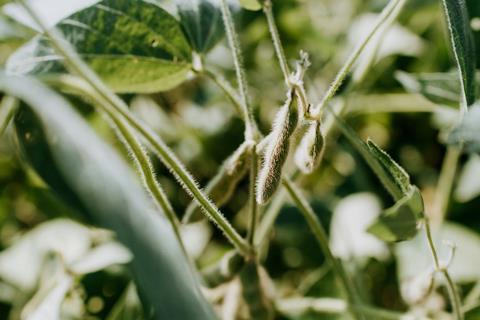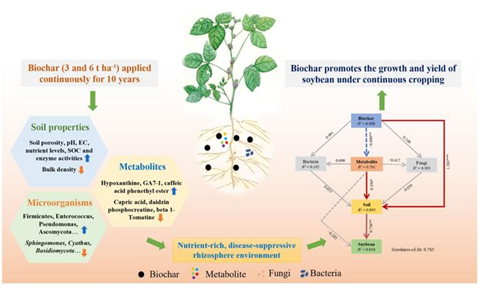A decade-long field study has revealed that biochar, a charcoal-like material made from plant residues, can significantly improve soil quality and boost soybean production in continuous cropping systems. The findings provide new evidence that biochar could be a powerful tool for making agriculture more sustainable.

Researchers from Shenyang Agricultural University tested the effects of biochar applied at two different rates compared with conventional fertilization. Over ten years, plots treated with biochar showed major improvements in soil structure, fertility, and microbial activity. Higher application levels enhanced soil porosity, increased organic carbon by more than 100 per cent, and improved pH and nutrient balance while lowering soil compaction.
READ MORE: New biochar technology promises breakthrough in soil clean-up and crop safety
READ MORE: New study shows biochar’s electrical properties can influence rice field methane emissions
The study, published in Biochar, also showed that biochar reshaped soil microbial communities. Beneficial groups such as Firmicutes, Pseudomonas, and Mortierella became more abundant, while potential plant pathogens were suppressed. At the same time, biochar influenced the chemical signals plants release through their roots. These rhizosphere metabolites help regulate plant–microbe interactions. Biochar reduced compounds linked to soil stress and disease while promoting metabolites that strengthen plant defenses and growth.
“These results demonstrate that biochar does more than just improve soil structure. It also acts on the biological and chemical networks around plant roots, helping create a healthier ecosystem for crops,” said lead author Di Wu.
Benefits for farmers
The benefits for farmers were clear. Biochar-treated soybeans grew taller, developed stronger root systems, and produced significantly higher yields. In high-dose plots, yields rose by nearly 46 percent compared to conventional fertilization.
Continuous soybean cultivation is widely practiced but often leads to declining soil fertility and rising disease pressure. Conventional solutions like fertilizers and pesticides can temporarily reduce problems but do not restore soil health. Biochar, by contrast, offers a long-lasting way to rebuild soil quality and resilience.

“Our decade of field data shows that biochar can support both soil restoration and crop productivity,” said co-author Wenfu Chen. “This could be a promising strategy for farmers facing the challenges of continuous cropping.”
The study provides strong evidence that biochar can play a vital role in advancing sustainable agriculture. By simultaneously improving soil physics, chemistry, and biology, it offers a practical solution to help secure global food supplies while protecting the environment.







No comments yet